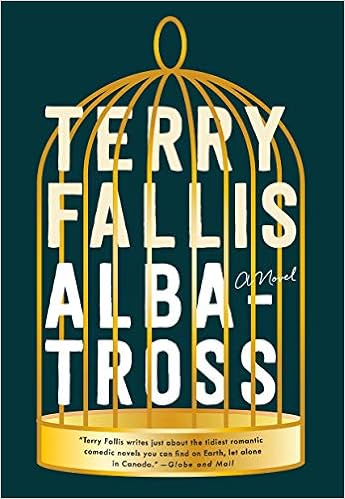Adam Coryell is in his last year of high school when his new phys. ed. teacher,
applying the theory of a Swedish professor, discovers that Adam has the ideal
body for golf. Though he has never even
held a golf club, he proves to be a golfing prodigy. Even though he wants to be a writer, he
follows the path of least resistance and quickly becomes an international
celebrity with, he thinks, an unmerited fortune. Despite his meteoric rise, he is bored and
unhappy because his unwanted talent takes him away from his true dream.
The book explores the difference between success and happiness. Adam has a great deal of success, but he has
a problem: “I just didn’t like golf that
much . . . It took a very long time to play and didn’t seem to accomplish
anything particularly redeeming or constructive. . . . The world wouldn’t be a
better place if I could shoot lower scores than other golfers. But I believed the world just might be better
if I could write a story or a novel that moved people, that made them think,
that made them laugh, that empowered them” (119-120). When he wins, “’I didn’t really feel
anything. No excitement, no sense of
accomplishment” (192). He does not feel
fulfilled because his success comes with no effort or control: “I haven’t really won those tournaments, my
one-in-a-billion physical shell won them.
I am not responsible. I have no
agency, no control. I’m just along for
the ride. There’s no personal
satisfaction when I’m putting out no effort to contribute to my success’”
(220).
Ironically, Adam does not have the same level of writing talent: “I knew my writing still needed work. That just made me want it all the more”
(166). He focuses on creative writing in
university, however, and discovers satisfaction: “In my courses, there was real work involved
in achieving my academic goals, and real satisfaction came along with it”
(177). When he has a minor success in
writing, he is shocked at the “extraordinary and unprecedented feeling it
engendered” (348).
The plot is predictable. It is
inevitable that Adam will eventually make a choice between golf and writing,
between what brings him fame and fortune and what brings him happiness. The romance story involving Adam and his high
school sweetheart Alli also has the expected outcome. The only real surprise is the one scene in
Dubai and it is a bit over-the-top.
What is more problematic besides the predictability is the lack of tension. Adam does experience guilt because he is so
successful without effort and he is not enjoying himself, but he earns enough
money that he will never have to work in his life if he chooses not to do
so. Few obstacles arise and the
conflicts that do occur are resolved fairly quickly. The reader is well aware that should Adam
choose to focus on writing, money will never be an issue and he will never be a
starving author. That financial security
lessens the risks and so lessens the tension.
Another problem is that Adam is too good, too nice. He has no noteworthy flaws; he always has
good intentions and good deeds follow.
Were it not for his witty banter, I would describe him as bland and boring
(like the sport he plays). He seems to
lack emotional expressiveness; other than a meltdown during one interview, he
seems emotionally flat. His reaction to
a breakup is certainly understated. I
wish that his filter malfunctioned more often (148)! (Actually, all the characters are all so nice. The parents and girlfriend and coaches and
professors are so supportive. Virtually
everyone is pleasant and agreeable.)
I loved the title of the book since it works on several levels. An albatross is a rare bird which can stay
aloft for extended periods of time so it is a metaphor for Adam and his rare
talent. An albatross is also a difficult
golf score that few athletes achieve. Of
course, the term is used metaphorically to mean a burden that feels like a
curse, and that is the way Adam often views his golfing ability.
For me, the humour is gentle rather than the laugh-out-loud kind. For instance, Adam describes an angry tournament
official: “He was really steamed. I worried he might not only take a stroke from
me, but have one himself” (107). About
the funniest comment was Adam’s description of himself as an atypical
Canadian: “I’d never actually played
organized hockey, so my fighting skills were, shall we say, underdeveloped for
my age” (140).
The novel covers a time period from September 2013 to May 2022. Unfortunately, the book may suffer in terms
of realism because the last third is set in the near future. There is, for instance, no reference to
COVID-19. And the Tokyo Olympics have been postponed.
I think the book could be shorter than its 388 pages. There were discussions of golfing, writing
techniques, and fountain pens that could be abbreviated. What are the chances of finding three people
who are such aficionados of fountain pens and ink? (I do use a fountain pen for my journal, and
I did recently see a couple of pens I liked at the Mont Blanc store at Schiphol
airport in Amsterdam; sadly, I couldn’t see spending over $4,000 on a pen!)
Despite its flaws, this is a quick, enjoyable read which does not
require much effort from the reader.

No comments:
Post a Comment